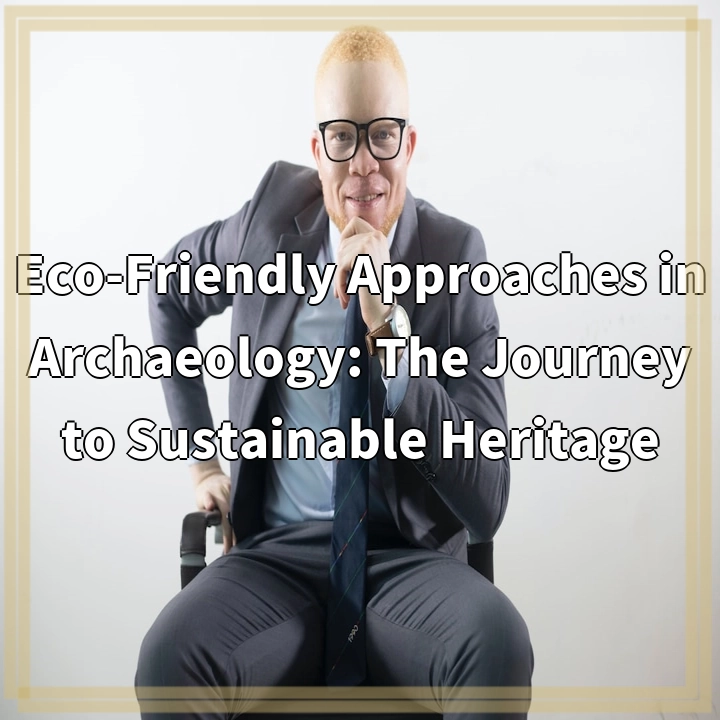
What are Eco-Friendly Approaches in Archaeology?
Eco-Friendly Approaches in Archaeology refer to the implementation of sustainable practices and principles in archaeological research, conservation, and site management. These approaches aim to minimize the environmental impact of archaeological activities and promote the preservation of cultural heritage while considering the long-term wellbeing of the planet.
The Real-World Problems Associated with Eco-Friendly Approaches
Eco-Friendly Approaches in Archaeology face several challenges in their implementation. These challenges stem from the complexities and unique nature of archaeological work and the balance between preservation and sustainable practices. Some of the real-world problems associated with eco-friendly approaches in archaeology include:
1. Limited Resources:
Archaeological projects often face limited resources, such as funding, time, equipment, and manpower. This can hinder the implementation of eco-friendly practices, as they may require additional investment or specialized expertise. Finding ways to integrate sustainability measures within limited resources is a key challenge.
2. Site Accessibility and Infrastructure:
Archaeological sites are often located in remote or challenging environments, which can make it difficult to establish sustainable infrastructures. Lack of proper waste management systems, energy sources, and water access can pose barriers to implementing eco-friendly approaches.
3. Balancing Conservation and Research Needs:
Archaeologists strive to preserve and protect cultural heritage for future generations while conducting necessary research. Finding the balance between conservation and research needs can be complex. Eco-friendly approaches should consider the scientific requirements of archaeological research while minimizing the impact on the environment and cultural resources.
4. Cultural Sensitivity and Stakeholder Engagement:
Engaging local communities, indigenous groups, and other stakeholders in archaeological projects is essential. However, cultural sensibilities, beliefs, and concerns may sometimes conflict with eco-friendly practices. Striking a balance between sustainable methods and cultural sensitivities can be challenging.
5. Regulatory Framework and Policies:
The implementation of eco-friendly approaches in archaeology depends on a supportive regulatory framework and policies. Inadequate regulations or lack of clear guidelines can hinder the adoption of sustainable practices. Collaborative efforts between archaeologists, heritage organizations, and policymakers are necessary to address this challenge.
6. Education and Awareness:
Creating awareness and educating archaeologists, site managers, and other stakeholders about the importance and benefits of eco-friendly approaches is essential. Incorporating sustainable practices into academic curricula and professional training can help address this challenge and promote the adoption of eco-friendly methods.

Potential Solutions for Eco-Friendly Approaches
Despite the challenges, there are potential solutions to promote eco-friendly approaches in archaeology:
1. Increased Funding and Resource Allocation:
Securing adequate funding for archaeological projects and allocating resources specifically for implementing sustainable practices can help overcome the limitations posed by limited resources.
2. Innovative Technologies and Techniques:
Exploring and adopting new technologies and techniques that are environmentally friendly can contribute to minimizing the impact of archaeological activities on the ecosystem.
3. Collaboration and Knowledge Sharing:
Encouraging collaboration among archaeologists, heritage organizations, scientists, and other stakeholders can foster the exchange of knowledge and best practices in implementing eco-friendly approaches.
4. Local Community Involvement:
Involving local communities and indigenous groups in decision-making processes and project planning can ensure their cultural sensitivities are respected while incorporating sustainable practices.
5. Strengthened Policies and Regulations:
Advocating for the development and enforcement of specific policies and regulations that promote eco-friendly approaches in archaeology can create a supportive framework for sustainable practices.
6. Education and Awareness Campaigns:
Raising awareness about the importance of eco-friendly approaches in archaeology through targeted education and awareness campaigns can help change mindsets and encourage wider adoption of sustainable practices.















